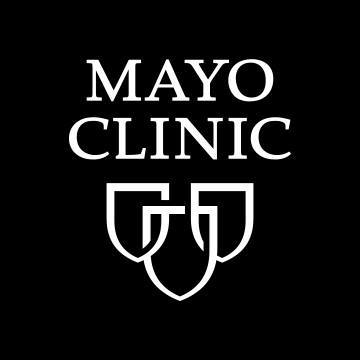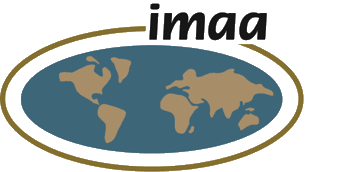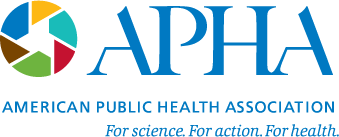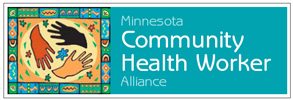IMAA’s Community Health Workers (CHW) serve as liaisons between underserved populations and the health care and social systems in the Rochester, Kasson/Byron, and Austin/Albert Lea communities. CHWs share defining characteristics with the populations they serve and work on the front lines to provide advocacy, information, and education to underserved populations in order to help them improve their lifestyle, manage their chronic conditions, and connect them to the proper health care resources and services.
Role of a Community Health Worker
What is a Community Health Worker?
Community Health Workers are individuals who work on the frontlines of public health who have a unique and invaluable understanding of the communities that they serve. According to the American Public Health Association, community health workers usually have an unusually close relationship with the people and communities they care for, and therefore often serve as intermediaries and liaisons between the overarching health/social services, and the communities in which these individuals exist. The understanding and general knowledge of the people served by community health workers is a crucial resource that helps facilitate access and services, in order to improve the overall health service quality and experience.
In most cases, this understanding of the communities served by community health workers is gained through a cultural competency that is learned by those providing aid. By essentially bridging an intercultural gap, these workers can better understand the needs of those they provide services to. Through activities such as social support, community education, and advocacy, these community health workers in effect increase the overall health knowledge of these communities, leading to a health and social service that is individualized and addresses the unique needs of those who require support.
A Profession of Understanding
In many cases, community health workers who grow up in minority communities have learned sociocultural experiences, such as language, that aid in understanding and providing services to these communities. These providers usually have deeply-rooted experiences that reflect similar values, ethnic makeup, and familial similarities to the populations they aid. However, one can also become a successful community health worker through years of study and exposure to those they provide aid to. Regardless of ethnic, sociocultural, or educational background, it is nonetheless imperative that community health workers have the ability to bridge the gap between the community and social services, healthcare, immediate governance, and employment.
According to Explore Health Careers, the success of the efforts on behalf of community health workers have caused faith-based groups, non-profit organization, and government agencies to create full-time positions in this field. The reasoning behind this position is that these workers have proven to be successful in reducing, and in some cases eliminating, the cyclic and persistent failures in health care for minority and underprivileged communities. Furthermore, creating internal positions that not only provide aid to the target communities, but also gather pertinent health-related information, helps these organizations to improve the design and reach of their individualized care.
What Do Community Health Workers Do?
Due to the fact that these professionals have to be closely linked to the communities they serve, both in understanding and geographic location, these health workers often live within their target populations. In addition to providing individualized care and regular health check-ups, community health workers also spend time educating groups, distributing information and health-related materials, and speaking with community members to better understand the immediate needs of the people they serve. Proactive and preventative care is one component that is on the forefront of the community health field, so providing regular open screenings setting up testing clinics is a common initiative.
In many cases, the populations served by these workers are new to the United States and have not yet obtained driving licenses. In these situations, community health workers can help their clients complete health applications by hand-delivering them to the designated households. The education of youth is a major initiative as well, so curating health education presentations to schools, students, parents, and teachers in these communities is another major responsibility of the community health worker.
Building Trust Between Service Providers and the Community
It is equally important for the community health worker to build a level of trust and rapport with their target demographic, as it is for them to understand and be able to effectively communicate with these communities. This sometimes places these providers in difficult situations when they have to bridge the gap between the traditional medical efforts of practitioners within these communities, and the health service the worker is advocating for. Without disregarding or disrespecting the community’s history, faith, and understanding of health, the community health worker must still help their clients successfully navigate the local atmosphere and laws in order to provide effective coverage. This trust can take months, if not years, to build with community officials and representatives.
IMAA’s Community Health Workers Program
IMAA’s Community Health Workers Program is designed to reduce the linguistic and cultural barriers to health care. Not only have these professionals been successful in improving the cost effectiveness and quality of care for diverse and underserved communities in the greater metropolitan Rochester region, but many of these workers originate from the same communities they serve, aiding in the understanding and cultural competency component.
From helping coordinate care between different providers, to arranging and interpreting transportation services, IMAA provides a level of unparalleled care for underserved and minority communities. IMAA also offers a diversity of options and services to employers, including providing aid to those without insurance by helping them apply for public health coverage, assisting in language-based barriers, financial difficulties, and designing culturally-appropriate workplace wellness programs.
Partners

IMAA partners with Mayo Clinic as an extension of the clinical care coordination care and social work teams to address the Social Determinants of Health and provide a holisitc approach to patient needs.
The following resources provide information about the Community Health Worker (CHW) movement in Minnesota and nationwide.
CHW services are provided at no cost and will assist you regardless of your insurance or immigration status. At this time, CHW’s can travel up to 30 miles from IMAA. If you are a patient and need to contact a CHW, do not submit a request through the IMAA website. Please contact Tara Nelson, Healthcare Access and Education Program Manager.
For questions or to learn more about the CHW Program, contact Tara Nelson at (507)-289-5960 ext. 102 or tara.nelson@imaa.net
Donate Today!
We need your support to be able to continue building bridges between cultures.
Have questions? Contact us today!
If you need an interpreter, please complete the interpreter request form found at the top of this page under "Request an Interpreter"
Get In Touch
Address:
2500 Valleyhigh Drive NW
Rochester, MN, 55901
Phone: (507) 289-5960
Fax: (507) 289-6199
Business Hours:
Monday - 8:30am-5pm
Tuesday - 10:00am-5pm
Wednesday - 8:30am-5pm
Thursday - 8:30am-5pm
Friday - 8:30am-5pm
Saturday and Sunday - Closed




